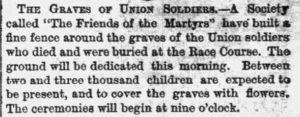Once upon a time in Black Entrepreneur History, six African American men gathered together for the grand idea to open a Black-owned bank for the African American community in 1888. The bank was opened on October 17th after securing a place for the business. The several men utilized their own money, and paid rent of the building one month in advance, and the address of the United States’ first African American owned bank was on 804 F. Street in Washington D.C.
The Honorable John R. Lynch, D.B. M’Cary, Henry E. Baker, L.C. Bailey, and J. R. Wilder plus one more unknown were the founders of what is known as the first Black-owned bank in the United States of America. The group resolved the issue of African Americans being rejected by white owned banks across the country.
When African Americans were rejected by white-owned banks, there was no way for African Americans to build wealth through investment funds, savings or gain loans, therefore, instead of spending money, African Americans saved the way that they could and placed their money inside their own operations. Some of these African Americans opened one of the first Black-owned bank in the USA – Capital Savings Bank – managed by African Americans.
“A bank with a colored president, colored cashier, colored clerks and colored board of directors! Impossible! said some. Foolish, said some others. But we meant to succeed if success were possible, and we worked right along just as if we had a silent partner named Rothschild.” – Henry E. Baker [1]
On day one of their Capital Savings Bank opened, they had authorized capital stock of $6000. After paying expenses, the African American founders of Capital Savings Bank “started out with less than $500 in cash in the drawer with to do a general banking business.” It was in two months that deposits rose to about $14,000 and in the next year of 1889, deposits increased to $117,000. In 1890, the deposits had increased to $210,500 and by 1893, Capital Savings Bank had deposits equal to $900,000, which is about 30 million dollars in today’s year of 2022. The AA public had that much confidence in them, despite the antagonism the founders of the bank faced, along with prejudices and rivals in the same business industry.[1]
As far as the stockholders in Capital Savings Bank, they were the wealthiest and “most competent Afro-Americans”[1] in the the District of Columbia. The bank handled two million dollars in its first years, which is the equivalent of about 47 million dollars in 2022.

About Capital Savings Bank Founders
One founding member of Capital Savings Bank was the formerly enslaved and former Congressman John R. Lynch who was an attorney, author, and even politician who served as the first African American Speaker of the Mississippi House of Representatives, also the first AA speaker in the entire USA, as well as was a US House Representative for the state of Mississippi. This same man was also the author of the book titled Dunning School which discussed how white historians would forever downplay the achievements/contributions of AA during Reconstruction. As far as Capital Savings Bank, he was the auditor of the treasury and president.
Also, there was JR Wilder, serving as vice president of Capital Savings Bank,, and he was Howard University law department alum. H. E. Baker served as Secretary, with prior work as an examiner in the patent office. H. E. Baker is quoted as stating this about Capital Savings Bank:
“Born into an almost abject poverty, and growing into a vigorous manhood amid the most unfavorable surroundings, is a feat that neither individuals nor enterprises perform with frequency. Banks are a commercial necessity in all business centers. They are the medium through which the money property of individuals changes ownership. They touch the money pulse of a community. As a rule, therefore, the men who organize banks are men of wide business experience, with ample resource at their command and enjoying a large share of public confidence. Under ordinary circumstances, when these conditions are lacking, men either haven’t the courage to organize a bank or they haven’t the luck to succeed at it. It would appear from this, therefore, that when a set of men who have had absolutely no experience of the sort required in successfully conducting a bank, and who are lacking in the essential resources of means and credit, undertake to put in operation a business enterprise under the pretentious name of a bank, surely the difficulties in the way of their success would appear well-night insurmountable. But such was just the unfavorable condition under which this present enterprise had it’s birth. One point alone stood out prominently as a hopeful indication in organizing this enterprise, and that was the growing necessity for its existence.[1]”
Capital Savings Bank closed its doors in 1902. Other Black owned banks were open and thrived during that time until now.
Sources
- The Waterbury Democrat 12 Jan 1893, Thu · Page 3





More Related Stories
James Wormley – Founder of the Most Expensive Hotel in Washington D.C. in 1800s – the Wormley Hotel
William E. Matthews – Wealthy Financial Broker & Civil Rights Leader of 1800s
Charles Porter Grove – Owner of Montana and Illinois Gold Mining Company & Leader of the “Dreamed” Grove City, Montana